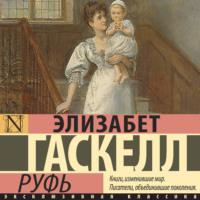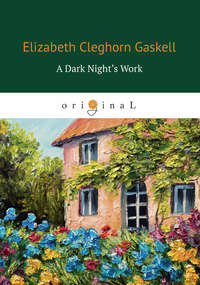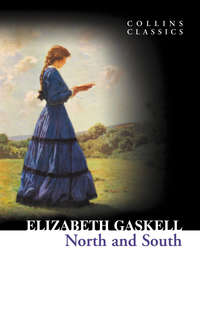
Полная версия
Mary Barton
‘I’ve one plan I wish to tell John Barton,’ said a pompous, careful-speaking man, ‘and I should like him for to lay it afore the Honourable House. My mother comed out o’ Oxfordshire, and were underlaundry-maid in Sir Francis Dashwood’s family; and when we were little ones, she’d tell us stories of their grandeur: and one thing she named were, that Sir Francis wore two shirts a day. Now he were all as one as a Parliament man; and many on ’em, I han no doubt, are like extravagant. Just tell ’em, John, do, that they’d be doing the Lancashire weavers a great kindness, if they’d ha’ their shirts a’ made o’ calico; ’twould make trade brisk, that would, wi’ the power o’ shirts they wear.’
Job Legh now put in his word. Taking the pipe out of his mouth, and addressing the last speaker, he said:
‘I’ll tell ye what, Bill, and no offence, mind ye; there’s but hundreds of them Parliament folk as wear so many shirts to their back; but there’s thousands and thousands o’ poor weavers as han only gotten one shirt i’ the world; ay, and don’t know where t’ get another when that rag’s done, though they’re turning out miles o’ calico every day; and many a mile o’t is lying in warehouses, stopping up trade for want o’ purchasers. Yo take my advice, John Barton, and ask Parliament to set trade free, so as workmen can earn a decent wage, and buy their two, ay and three, shirts a year; that would make weaving brisk.’
He put his pipe in his mouth again, and redoubled his puffing, to make up for lost time.
‘I’m afeard, neighbours,’ said John Barton, ‘I’ve not much chance o’ telling ’em all yo say; what I think on, is just speaking out about the distress that they say is nought. When they hear o’ children born on wet flags, without a rag t’ cover ’em or a bit o’ food for th’ mother; when they hear of folk lying down to die i’ th’ streets, or hiding their want i’ some hole o’ a cellar till death come to set ’em free; and when they hear o’ all this plague, pestilence, and famine, they’ll surely do somewhat wiser for us than we can guess at now. Howe’er, I han no objection, if so be there’s an opening, to speak up for what yo say; anyhow, I’ll do my best, and yo see now, if better times don’t come after Parliament knows all.’
Some shook their heads, but more looked cheery: and then one by one dropped off, leaving John and his daughter alone.
‘Didst thou mark how poorly Jane Wilson looked?’ asked he, as they wound up their hard day’s work by a supper eaten over the fire, which glowed and glimmered through the room, and formed their only light.
‘No, I can’t say as I did. But she’s never rightly held up her head since the twins died; and all along she has never been a strong woman.’
‘Never sin’ her accident. Afore that I mind her looking as fresh and likely a girl as e’er a one in Manchester.’
‘What accident, father?’
‘She cotched* her side again a wheel. It were afore wheels were boxed up. It were just when she were to have been married, and many a one thought George would ha’ been off his bargain; but I knew he wern’t the chap for that trick. Pretty near the first place she went to when she were able to go about again, was th’ Oud Church; poor wench, all pale and limping she went up the aisle, George holding her up as tender as a mother, and walking as slow as e’er he could, not to hurry her, thought there were plenty enow of rude lads to cast their jests at him and her. Her face were white like a sheet when she came in church, but afore she got to th’ altar she were all one flush. But for a’ that it’s been a happy marriage, and George has stuck by me through life like a brother. He’ll never hold up his head again if he loses Jane. I didn’t like her looks to-night.’
And so he went to bed, the fear of forthcoming sorrow to his friend mingling with his thoughts of to-morrow, and his hopes for the future. Mary watched him set off, with her hands over her eyes to shade them from the bright slanting rays of the morning sun, and then she turned into the house to arrange its disorder before going to her work. She wondered if she should like or dislike the evening and morning solitude; for several hours when the clock struck she thought of her father, and wondered where he was; she made good resolutions according to her lights; and by-and-by came the distractions and events of the broad full day to occupy her with the present, and to deaden the memory of the absent.
One of Mary’s resolutions was, that she would not be persuaded or induced to see Mr Harry Carson during her father’s absence. There was something crooked in her conscience after all: for this very resolution seemed an acknowledgment that it was wrong to meet him at any time; and yet she had brought herself to think her conduct quite innocent and proper, for although unknown to her father, and certain, even did he know it, to fail of obtaining his sanction, she esteemed her love-meeting with Mr Carson as sure to end in her father’s good and happiness. But now that he was away, she would do nothing that he would disapprove of; no, not even though it was for his own good in the end.
Now, amongst Miss Simmonds’ young ladies was one who had been from the beginning a confidante in Mary’s love affair, made so by Mr Carson himself. He had felt the necessity of some third person to carry letters and messages, and to plead his cause when he was absent. In a girl named Sally Leadbitter he had found a willing advocate. She would have been willing to have embarked in a love affair herself (especially a clandestine one), for the mere excitement of the thing; but her willingness was strengthened by sundry half-sovereigns, which from time to time Mr Carson bestowed upon her.
Sally Leadbitter was vulgar-minded to the last degree; never easy unless her talk was of love and lovers; in her eyes it was an honour to have had a long list of wooers. So constituted, it was a pity that Sally herself was but a plain, red-haired, freckled girl; never likely, one would have thought, to become a heroine on her own account. But what she lacked in beauty she tried to make up for by a kind of witty boldness, which gave her what her betters would have called piquancy. Considerations of modesty or propriety never checked her utterance of a good thing. She had just talent enough to corrupt others. Her very good nature was an evil influence. They could not hate one who was so kind; they could not avoid one who was so willing to shield them from scrapes by any exertion of her own; whose ready fingers would at any time make up for their deficiencies, and whose still more convenient tongue would at any time invent for them. The Jews, or Mohammedans (I forget which), believe that there is one little bone of our body, – one of the vertebrae, if I remember rightly, – which will never decay and turn to dust, but will lie incorrupt and indestructible in the ground until the Last Day: this is the Seed of the Soul. The most depraved have also their Seed of the Holiness that shall one day overcome their evil; their one good quality, lurking hidden, but safe, among all the corrupt and bad.
Sally’s seed of the future soul was her love for her mother, an aged bedridden woman. For her she had self-denial; for her, her good-nature rose into tenderness; to cheer her lonely bed, her spirits, in the evenings, when her body was often woefully tired, never flagged, but were ready to recount the events of the day, to turn them into ridicule, and to mimic, with admirable fidelity, any person gifted with an absurdity who had fallen under her keen eye. But the mother was lightly principled like Sally herself; nor was there need to conceal from her the reason why Mr Carson gave her so much money. She chuckled with pleasure, and only hoped that the wooing would be long a-doing.
Still neither she nor her daughter, nor Harry Carson liked this resolution of Mary, not to see him during her father’s absence.
One evening (and the early summer evenings were long and bright now), Sally met Mr Carson by appointment, to be charged with a letter for Mary, imploring her to see him, which Sally was to back with all her powers of persuasion. After parting from him she determined, as it was not so very late, to go at once to Mary’s, and deliver the message and letter.
She found Mary in great sorrow. She had just heard of George Wilson’s sudden death: her old friend, her father’s friend, Jem’s father – all his claims came rushing upon her. Though not guarded from unnecessary sight or sound of death, as the children of the rich are, yet it had so often been brought home to her this last three or four months. It was so terrible thus to see friend after friend depart. Her father, too, who had dreaded Jane Wilson’s death the evening before he set off. And she, the weakly, was left behind, while the strong man was taken. At any rate the sorrow her father had so feared for him was spared. Such were the thoughts which came over her.
She could not go to comfort the bereaved, even if comfort were in her power to give! for she had resolved to avoid Jem; and she felt that this of all others was not the occasion on which she could keep up a studiously cold manner.
And in this shock of grief, Sally Leadbitter was the last person she wished to see. However, she rose to welcome her, betraying her tear-swollen face.
‘Well, I shall tell Mr Carson to-morrow how you’re fretting for him; it’s no more nor he’s doing for you, I can tell you.’
‘For him, indeed!’ said Mary, with a toss of her pretty head.
‘Ay, miss, for him! You’ve been sighing as if your heart would break now for several days, over your work; now, aren’t you a little goose not to go and see one who I am sure loves you as his life, and whom you love; “How much, Mary?” “This much,” as the children say’ (opening her arms very wide).
‘Nonsense,’ said Mary, pouting; ‘I often think I don’t love him at all.’
‘And I’m to tell him that, am I, next time I see him?’ asked Sally.
‘If you like,’ replied Mary. ‘I’m sure I don’t care for that or anything else now’; weeping afresh.
But Sally did not like to be the bearer of any such news. She saw she had gone on the wrong tack, and that Mary’s heart was too full to value either message or letter as she ought. So she wisely paused in their delivery and said, in a more sympathetic tone than she had hitherto used:
‘Do tell me, Mary, what’s fretting you so? You know I never could abide to see you cry.’
‘George Wilson’s dropped down dead this afternoon,’ said Mary, fixing her eyes for one minute on Sally, and the next hiding her face in her apron as she sobbed anew.
‘Dear, dear! All flesh is grass; here to-day and gone to-morrow, as the Bible says. Still he was an old man, and not good for much; there’s better folk than him left behind. Is th’ canting old maid as was his sister alive yet?’
‘I don’t know who you mean,’ said Mary sharply; for she did know, and did not like to have her dear, simple Alice so spoken of.
‘Come, Mary, don’t be so innocent. Is Miss Alice Wilson alive, then; will that please you? I haven’t seen her hereabouts lately.’
‘No, she’s left living here. When the twins died, she thought she could, maybe, be of use to her sister, who was sadly cast down, and Alice thought she could cheer her up; at any rate she could listen to her when her heart grew overburdened; so she gave up her cellar and went to live with them.’
‘Well, good go with her. I’d no fancy for her, and I’d no fancy for her making my pretty Mary into a Methodee.’
‘She wasn’t a Methodee; she was Church o’ England.’
‘Well, well, Mary, you’re very particular. You know what I meant. Look, who is this letter from?’ holding up Henry Carson’s letter.
‘I don’t know, and don’t care,’ said Mary, turning very red.
‘My eye! as if I didn’t know you did know and did care.’
‘Well, give it me,’ said Mary impatiently, and anxious in her present mood for her visitor’s departure.
Sally relinquished it unwillingly. She had, however, the pleasure of seeing Mary dimple and blush as she read the letter, which seemed to say the writer was not indifferent to her.
‘You must tell him I can’t come,’ said Mary, raising her eyes at last. ‘I have said I won’t meet him while father is away, and I won’t.’
‘But, Mary, he does so look for you. You’d be quite sorry for him, he’s so put out about not seeing you. Besides, you go when your father’s at home, without letting on* to him, and what harm would there be in going now?’
‘Well, Sally, you know my answer, I won’t; and I won’t.’
‘I’ll tell him to come and see you himself some evening, instead o’ sending me; he’d maybe find you not so hard to deal with.’
Mary flashed up.
‘If he dares to come here while father’s away, I’ll call the neighbours in to turn him out, so don’t be putting him up to that.’
‘Mercy on us! one would think you were the first girl that ever had a lover; have you never heard what other girls do and think no shame of?’
‘Hush, Sally! that’s Margaret Jennings at the door.’
And in an instant Margaret was in the room. Mary had begged Job Legh to let her come and sleep with her. In the uncertain firelight you could not help noticing that she had the groping walk of a blind person.
‘Well, I must go, Mary,’ said Sally. ‘And that’s your last word?’
‘Yes, yes; good-night.’ She shut the door gladly on her unwelcome visitor – unwelcome at that time at least.
‘O Margaret, have ye heard this sad news about George Wilson?’
‘Yes, that I have. Poor creatures, they’ve been sore tried lately. Not that I think sudden death so bad a thing; it’s easy, and there’s no terrors for him as dies. For them as survives it’s very hard. Poor George! he were such a hearty-looking man.’
‘Margaret,’ said Mary, who had been closely observing her friend, ‘thou’rt very blind to-night, arn’t thou? Is it wi’ crying? Your eyes are so swollen and red.’
‘Yes, dear! but not crying for sorrow. Han ye heard where I was last night?’
‘No; where?’
‘Look here.’ She held up a bright golden sovereign. Mary opened her large grey eyes with astonishment.
‘I’ll tell you all and how about it. You see there’s a gentleman lecturing on music at th’ Mechanics’, and he wants folk to sing his songs. Well, last night the counter got a sore throat and couldn’t make a note. So they sent for me. Jacob Butterworth had said a good word for me, and they asked me would I sing? You may think I was frightened, but I thought, Now or never, and said I’d do my best. So I tried o’er the songs wi’ th’ lecturer, and then th’ managers told me I were to make myself decent and be there by seven.’
‘And what did you put on?’ asked Mary. ‘Oh, why didn’t you come in for my pretty pink gingham?’
‘I did think on’t; but you had na come home then. No! I put on my merino, as was turned last winter, and my white shawl, and did my hair pretty tidy; it did well enough. Well, but as I was saying, I went at seven. I couldn’t see to read my music, but I took th’ paper in wi’ me, to ha’ something to do wi’ my fingers. Th’ folks’ heads danced, as I stood as right afore ’em all as if I’d been going to play at ball wi’ ’em. You may guess I felt squeamish, but mine weren’t the first song, and th’ music sounded like a friend’s voice telling me to take courage. So, to make a long story short, when it were all o’er th’ lecturer thanked me, and th’ managers said as how there never was a new singer so applauded (for they’d clapped and stamped after I’d done, till I began to wonder how many pair o’ shoes they’d get through a week at that rate, let alone their hands). So I’m to sing again o’ Thursday; and I got a sovereign last night, and am to have half-a-sovereign every night th’ lecturer is at th’ Mechanics’.’
‘Well, Margaret, I’m right glad to hear it.’
‘And I don’t think you’ve heard the best bit yet. Now that a way seemed open to me, of not being a burden to any one, though it did please God to make me blind, I thought I’d tell grandfather. I only tell’d him about the singing and the sovereign last night, for I thought I’d not send him to bed wi’ a heavy heart; but this morning I telled him all.’
‘And how did he take it?’
‘He’s not a man of many words; and it took him by surprise like.’
‘I wonder at that; I’ve noticed it in your ways ever since you telled me.’
‘Ay, that’s it! If I’d not telled you, and you’d seen me every day, you’d not ha’ noticed the little mite o’ difference fra’ day to day.’
‘Well, but what did your grandfather say?’
‘Why, Mary,’ said Margaret, half smiling, ‘I’m a bit loth to tell yo, for unless yo knew grandfather’s ways like me, yo’d think it strange. He was taken by surprise, and he said: “Damn yo!” Then he began looking at his book as it were, and were very quiet, while I telled him all about it; how I’d feared, and how downcast I’d been; and how I were now reconciled to it, if it were th’ Lord’s will; and how I hoped to earn money by singing; and while I were talking, I saw great big tears come dropping on th’ book; but in course I never let on that I saw ’em. Dear grandfather! and all day long he’s been quietly moving things out o’ my way, as he thought might trip me up, and putting things in my way as he thought I might want; never knowing I saw and felt what he were doing; for, yo see, he thinks I’m out and out blind, I guess – as I shall be soon.’
Margaret sighed in spite of her cheerful and relieved tone.
Though Mary caught the sigh, she felt it was better to let it pass without notice, and began, with the tact which true sympathy rarely fails to supply, to ask a variety of questions respecting her friend’s musical début, which tended to bring out more distinctly how successful it had been.
‘Why, Margaret,’ at length she exclaimed, ‘thou’lt become as famous, maybe, as that grand lady fra’ London, as we see’d one night driving up to the concert-room door in her carriage.’
‘It looks very like it,’ said Margaret, with a smile. ‘And be sure, Mary, I’ll not forget to give thee a lift now and then when that comes about. Nay, who knows, if thou’rt a good girl, but mayhappen I may make thee my lady’s maid! Wouldn’t that be nice? So I e’en sing to mysel th’ beginning o’ one o’ my songs –
“An’ ye shall walk in silk attire,
An’ siller hae to spare.”’
‘Nay, don’t stop; or else give me something rather more new, for somehow I never quite liked that part about thinking o’ Donald mair.’
‘Well, though I’m a bit tired I don’t care if I do. Before I come, I were practising well-nigh upon two hours this one which I’m to sing o’ Thursday. The lecturer said he were sure it would just suit me, and I should do justice to it; and I should be right sorry to disappoint him, he were so nice and encouraging like to me. Eh! Mary, what a pity there isn’t more o’ that way, and less scolding and rating i’ th’ world! It would go a vast deal further. Beside, some o’ th’ singers said, they were a’most certain that it were a song o’ his own, because he were so fidgety and particular about it, and so anxious I should give it th’ proper expression. And that makes me care still more. Th’ first verse, he said, were to be sung “tenderly, but joyously!” I’m afraid I don’t quite hit that, but I’ll try.
“What a single word can do!
Thrilling all the heart-strings through,
Calling forth fond memories,
Raining round hope’s melodies,
Steeping all in one bright hue –
What a single word can do!”
Now it falls into th’ minor key, and must be very sad-like. I feel as if I could do that better than t’other.
“What a single word can do!
Making life seem all untrue,
Driving joy and hope away,
Leaving not one cheering ray,
Blighting every flower that grew –
What a single word can do!”’
Margaret certainly made the most of this little song. As a factory worker, listening outside, observed, ‘She spun it reet* fine!’ And if she only sang it at the Mechanics’ with half the feeling she put into it that night, the lecturer must have been hard to please, if he did not admit that his expectations were more than fulfilled.
When it was ended, Mary’s looks told more than words could have done what she thought of it; and partly to keep in a tear which would fain have rolled out, she brightened into a laugh, and said, ‘For certain th’ carriage is coming. So let us go and dream on it.’
* ‘Wick’, alive. Anglo-Saxon, cwic. ‘The quick and the dead.’ – Book of Common Prayer.
† ‘At after.’ ‘At after souper goth this noble king.’ – CHAUCER, The Squire’s Tale.
* ‘Ritling’, probably a corruption of ‘ricketling’, a child that suffers from the rickets – a weakling.
* ‘Cotched’, caught.
* ‘Letting on’, informing.
* ‘Reet’, right; often used for ‘very’.
CHAPTER 9
Barton’s London Experiences
‘A life of self-indulgence is for us,
A life of self-denial is for them;
For us the streets, broad-built and populous,
For them unhealthy corners, garrets dim,
And cellars where the water-rat may swim!
For us green paths refreshed by frequent rain,
For them dark alleys where the dust lies grim!
Not doomed by us to this appointed pain –
God made us rich and poor – of what do these complain?’
MRS NORTON’S ‘CHILD OF THE ISLANDS’
The next evening it was a warm, pattering, incessant rain – just the rain to waken up the flowers. But in Manchester, where alas! there are no flowers, the rain had only a disheartening and gloomy effect; the streets were wet and dirty, the drippings from the houses were wet and dirty, and the people were wet and dirty. Indeed, most kept within doors; and there was an unusual silence of footsteps in the little paved courts.
Mary had to change her clothes after her walk home; and had hardly settled herself before she heard some one fumbling at the door. The noise continued long enough to allow her to get up, and go and open it. There stood – could it be? yes it was, her father!
Drenched and wayworn, there he stood! He came in with no word to Mary in return for her cheery and astonished greeting. He sat down by the fire in his wet things, unheeding. But Mary would not let him so rest. She ran up and brought down his working-day clothes, and went into the pantry to rummage up their little bit of provision while he changed by the fire, talking all the while as gaily as she could, though her father’s depression hung like lead on her heart.
For Mary, in her seclusion at Miss Simmonds’, – where the chief talk was of fashions, and dress, and parties to be given, for which such and such gowns would be wanted, varied with a slight-whispered interlude occasionally about love and lovers, – had not heard the political news of the day; that Parliament had refused to listen to the working-men, when they petitioned, with all the force of their rough, untutored words, to be heard concerning the distress which was riding, like the Conqueror on his Pale Horse, among the people; which was crushing their lives out of them, and stamping woe-marks over the land.
When he had eaten and was refreshed, they sat for some time in silence; for Mary wished him to tell her what oppressed him so, yet durst not ask. In this she was wise; for when we are heavy-laden in our hearts it falls in better with our humour to reveal our case in our own way, and our own time.
Mary sat on a stool at her father’s feet in old childish guise, and stole her hand into his, while his sadness infected her, and she ‘caught the trick of grief, and sighed’, she knew not why.
‘Mary, we mun speak to our God to hear us, for man will not hearken; no, not now, when we weep tears o’ blood.’
In an instant Mary understood the fact, if not the details, that so weighed down her father’s heart. She pressed his hand with silent sympathy. She did not know what to say, and was so afraid of speaking wrongly, that she was silent. But when his attitude had remained unchanged for more than half-an-hour, his eyes gazing vacantly and fixedly at the fire, no sound but now and then a deep-drawn sigh to break the weary ticking of the clock, and the drip-drop from the roof without, Mary could bear it no longer. Anything to rouse her father. Even bad news.









